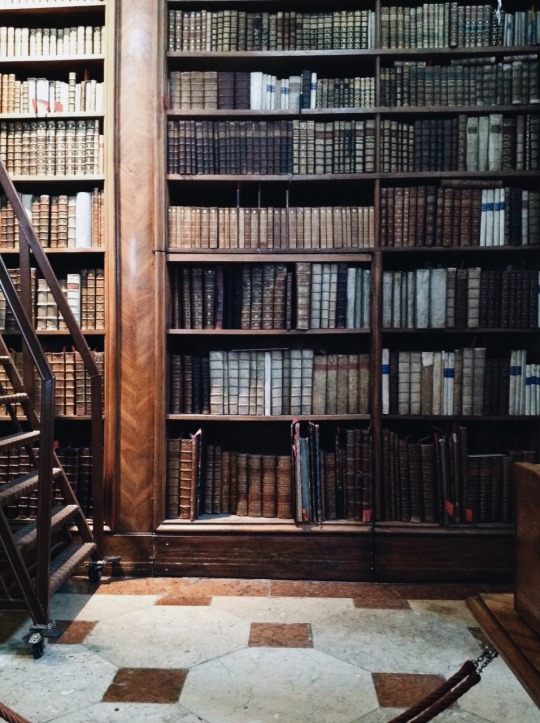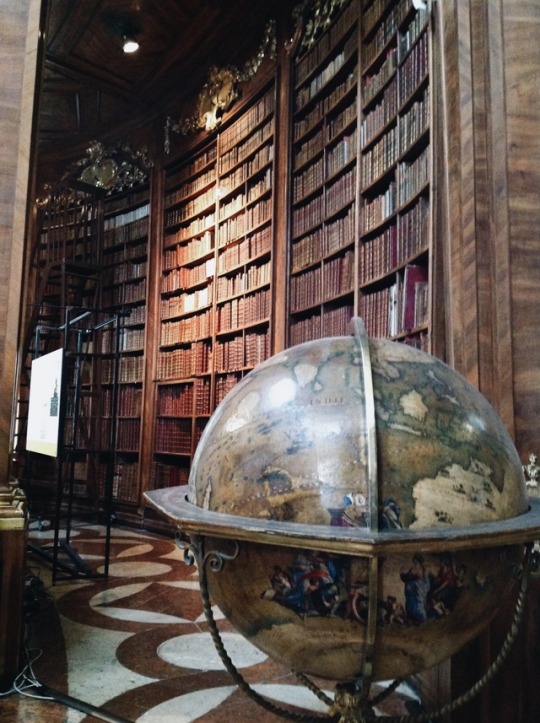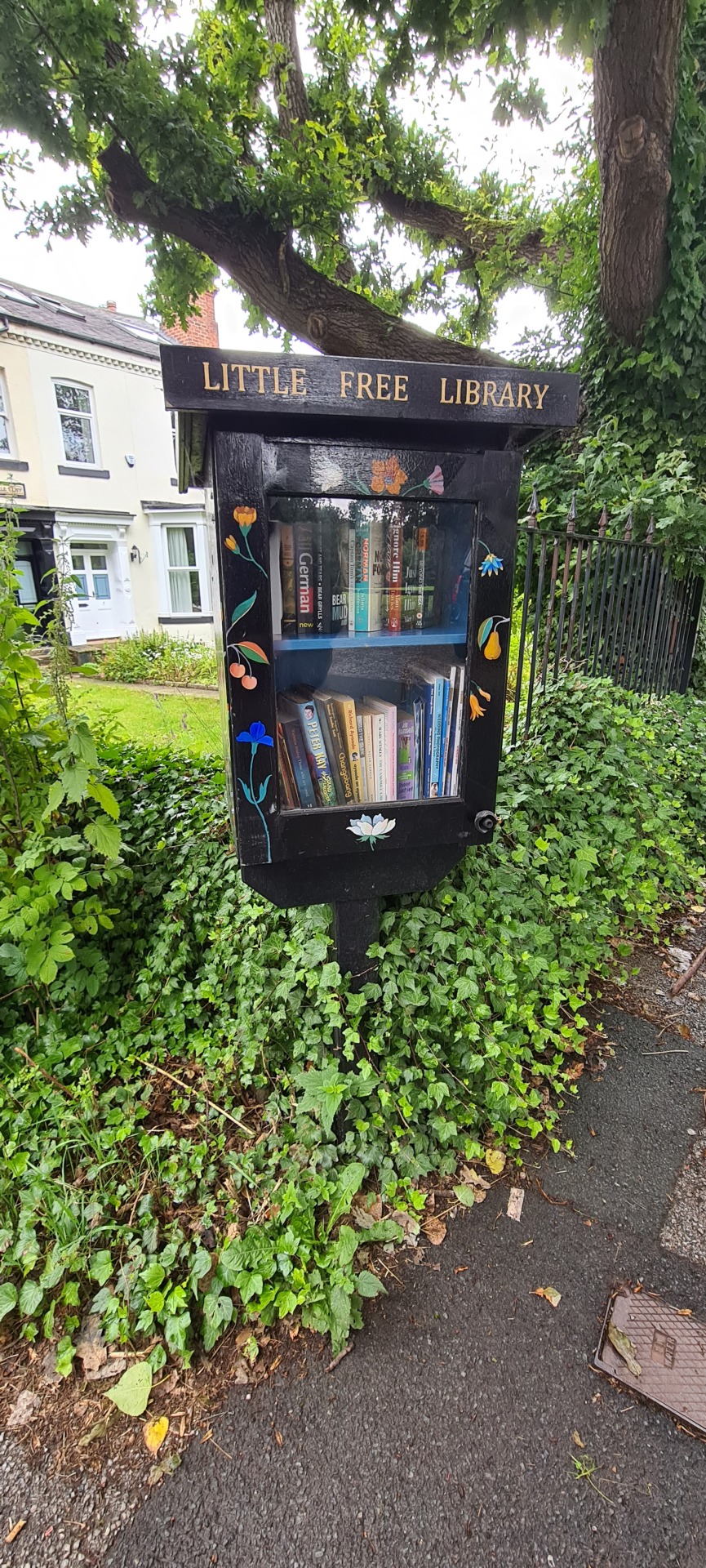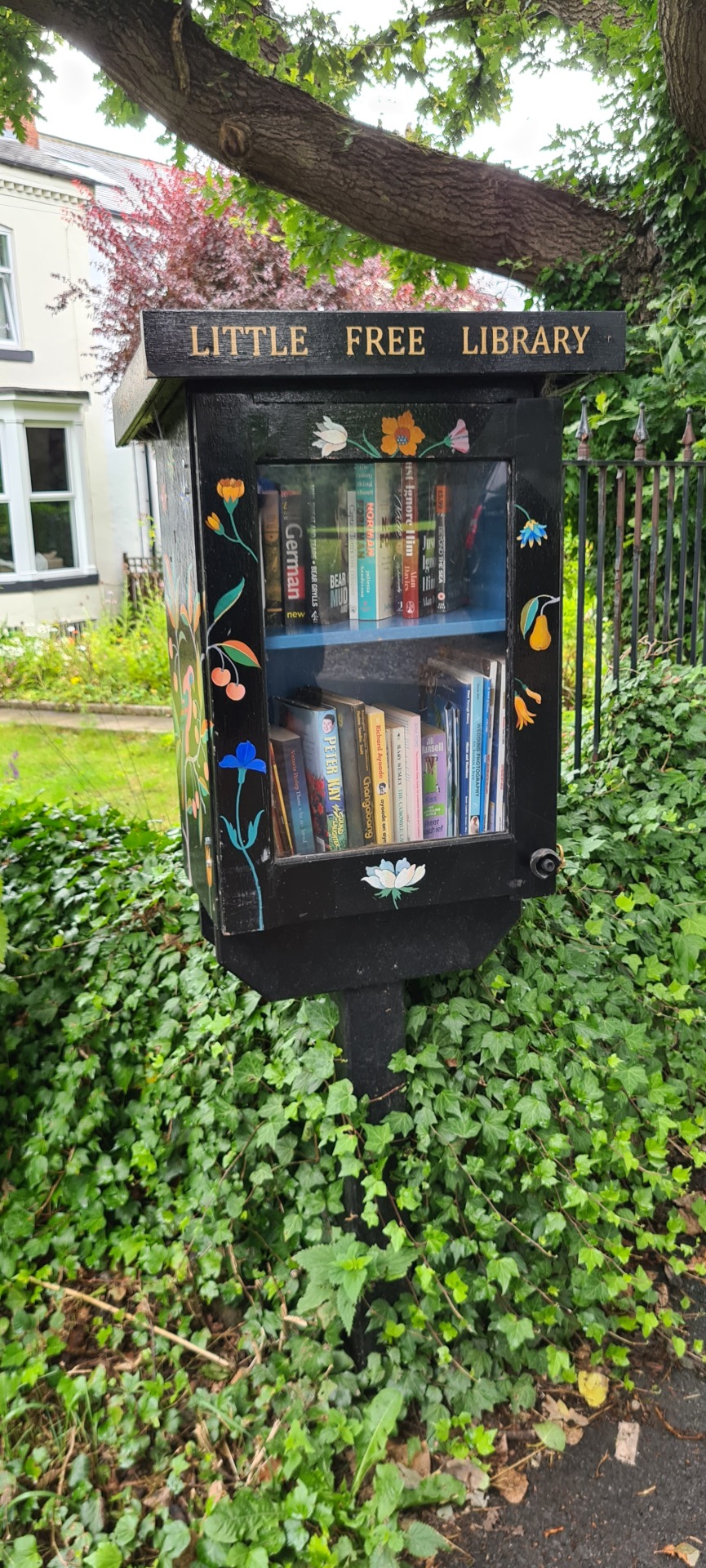Jackson, 25, bookblr, books I read and how they relate to my life
Don't wanna be here? Send us removal request.
Photo

Taking some solace in the beautiful large flakes of snow falling outside my Chicago window. Stay cozy, my friends!
312 notes
·
View notes
Text

I absolutely LOVED this book! Can’t wait until I read another book by Watts. Tao philosophy is beautiful and I feel very fortunate to have read this book.
I will attach some of my favourite excerpts from the book below.
Yin (negative) and yang (positive) lies the principle of polarity. In the metaphors of other cultures, light is at war with darkness, life with death, good with evil, positive with the negative, and thus an idealism to cultivate the former and be rid of the latter flourishes throughout much of the world. To the traditional way of Chinese thinking, this is as incomprehensible as an electrical current without both positive and negative poles, for polarity is the principle that + and -, north and south, are different aspects of one and the same system, and that the disappearance of either one of them would be the disappearance of the system.
Yang and yin are associated with the masculine and the feminine, the strong and the weak, the firm and the yielding, the light and the dark, the rising and the falling, heaven and earth, and even recognised in such everyday matters as cooking as the spicy and the bland. Thus the art of life is not seen as holding to yang and banishing yin, but as keeping the two in balance, because there cannot be one without the other. When regarding them as the masculine and the feminine, the reference is not so much to male and female individuals as to characteristics which are dominant in, but not confined to, each of the two sexes.
The art of life is more like navigation than warfare, for what is important is to understand the winds, the tides, the currents, the seasons, and the principles of growth and decay, so that one’s actions may use them and not fight them.
The yin-yang view of the world is serenely cyclic. Fortune and misfortune, life and death, whether in small scale or vast, come and go everlastingly without beginning or end, and the whole system is protected from monotony by the fact that, in just the same way, remembering alternates with forgetting.
Chinese philosophy takes it as a basic premise that if you cannot trust nature and other people, you cannot trust yourself. It is realising that oneself and nature are one and the same process, which is the Tao. True, this is an oversimplification, for one knows very well that some people cannot be trusted and that the unpredictable ways of nature are not always one’s own preconceived way, so that basic faith in the system involves taking risks. But when no risk is taken there is no freedom.
There cannot be any “before” unless there is an “after.”
Take it that you are not going anywhere but here, and that there never was, is, or will be any other time than now. Simply be aware of what actually is without giving it names and without judging it, for you are now feeling reality itself, instead of ideas and opinions about it.
There is no point in trying to suppress the babble of words and ideas that goes on in most adult brains, so if it won’t stop, let it go on as it will, and listen to it as if it were the sound of traffic or the clucking of hens.
Tao is just a name for whatever happens. The Tao belongs neither to knowing nor to not knowing. Knowing is false understanding; not knowing is blind ignorance. If you really understand the Tao beyond doubt, it’s like the empty sky. Why drag in right and wrong.
The most gentle thing in the world overrides the most hard.
Tao is the flowing course of nature and it’s universe.
Another reason why the Tao and it’s pattern escape us is that we are ourselves, and we are like a sword that cuts but cannot cut itself; like an eye that sees but cannot see itself.
What goes on simply happens of itself.
The Tao does nothing and yet nothing is left undone. Wu-Wei is going with the grain, not forcing. Swimming with the current. Knowing the principles, structures, and trends of human and natural affairs so well that one uses the least amount of energy in dealing with them.
Is a long life such a good thing if it is lived in constant search for satisfaction.
We must make the desperate gamble of trusting ourselves and others.
Trust in human nature is acceptance of the good-and-bad of it, and it is hard to trust those who do not admit their own weaknesses.
Taoists do sit in meditation, but not with the egoistic purpose of improving themselves; they meditate for the joy of meditation - the flow of breath, the sound of roosters in the distance, the light on the floor.
So long as we desire the experience called pleasure we imply, and so generate, it’s opposite.
Wu-wei is to roll with experiences and feelings as they come and go.
In the case of the body, it is best to let it go along with things. In the case of emotions, it is best to let them follow where they will. By going along with things, you avoid becoming separated by them. By letting the emotions follow as they will, you avoid fatigue.
It is worth re-emphasising the principle that “you” cannot go along with “things” unless there is the understanding that there is, in truth, no alternative since you and the things are the same process.
12 notes
·
View notes
Text

I started reading this book recently and am loving it so far. Joseph LeDoux writes incredibly well and it’s great to read a book by such an amazing scientist in the fields of fear and anxiety. The knowledge about fear and anxiety by LeDoux is mind blowing.
4 notes
·
View notes
Text
This is without a doubt my favourite book that I’ve read all year. Anna Lembke is the medical director of Stanford Addiction Medicine, program director for the Stanford Addiction Medicine Fellowship, and chief of the Stanford Addiction Medicine Dual Diagnosis Clinic. I listened to a podcast with her and Andrew Huberman, and knew that I had to read this book.
In an era of unprecedented access to high-reward, high-dopamine stimuli, we’ve all become vulnerable to compulsive overconsumption. Dopamine Nation feels highly relatable, riveting and cleverly argued. It is a book about pain and pleasure. It’s about how to find the balance between the two.
Anna discusses that pleasure and pain are processed in overlapping brain regions and work via an opponent-process mechanism. This means that pleasure and pain work like a balance. When we experience pleasure, dopamine is released in our reward pathway and the balanced tips to the side of pleasure. The more our balance tips, and the faster it tips, the more pleasure we feel. However as it is a balance, it wants to be in equilibrium. So every time the balance tips toward pleasure, powerful self-regulating mechanisms kick into action to bring it level by hopping onto the pain side of the balance and counteracting the weight on the pleasure side. Once the balance is level, it keeps going, tipping an equal and opposite amount to the side of pain. We’ve all experienced that moment of craving a second piece of chocolate, or wanting a good book, movie, or video game to last forever. That moment of wanting is the brains pleasure balance tipped to the side of pain. This book unpacks the neuroscience of reward together with stories from patients to enable us to find a better, healthier balance between pleasure and pain.


15 notes
·
View notes
Text

I finished this book tonight. So far I’ve come to the conclusion that I LOVE any book written by Scott Jurek or about ultra running. It was great to read about Scott’s record breaking journey on the Appalachian Trail. Going to his breaking point, then well past that. My favourite quote is this - “We often think we can’t go any farther and feel like we have nothing left to give, yet there is a hidden potential and strength in all of us, begging us to find it.” Reading Scott’s journey with his wife and team makes me admire him so much. Ultra runners are crazy, in a way that I’m in awe of them. I learned quite a bit about the Appalachian Trail from this book and boy do I desperately want to walk sections of it one day. A truly beautiful part of the world.
6 notes
·
View notes
Text

I picked up this book on anxiety to help me work with my own anxiety as well as deepen my knowledge of the subject to help me in my career as a future therapist. After reading it, I thought it was a mini book on ACT (acceptance and commitment therapy) and think it is similar to the book “A Liberated Mind” by Steven C Hayes.
It starts off by detailing that you can only change what you are aware of and teaches the readers how to become aware of unconscious behaviours, especially ones which may be increasing anxiety. A notion in this book similar to ACT is that values driven action is a goal to work towards. It provides an exercise to find out ones values and how to start living in alignment with them.
There are 8 tools provided in the book. These are: 1. Turn worry into a story and get the popcorn. 2. Mindfulness - present moment awareness, observing with intention and being non-judgmental. 3. Sit with uncertainty rather than fight it. Accept the inevitability of uncertainty. 4. Focus on problem solving. When doing this work on effort rather than outcome. Outcome is out of your control, effort is in your control. 5. Approach avoided situations. 6. Let go of safety behaviours - safety behaviours are defined as actions that are that are driven by a push away from a perceived threat, rather than a pull towards ones values. Write down the way safety behaviours get in the way of living the life you choose to. 7. Engage in mood boosters. Whatever those are for you. Small is better than not at all. Recognise all feelings are okay. Exercise. Journal. Practice self-compassion. Focus on consistency, not on outcome. Connect with others. Get out in nature. Let go of all or nothing thinking and celebrate effort. Among other mood boosters. 8. Be purposefully imperfect.
The book seems to have lots of good ideas and goes deeply into exercises one can do to decrease ones level of anxiety. I don’t necessarily believe that any book could solve someone’s anxiety. However, this book can be incredibly helpful on ones journey to living a life that is not controlled by anxiety. This book may not be beneficial for everyone, but I do recommend it to anyone who thinks their anxiety is out of control.
I just started reading a book on anxiety by Joseph LeDoux, the worlds leading researcher on the concept of anxiety, he states that avoidance is not always a bad thing for people with anxiety.
3 notes
·
View notes
Text

I finished this book last week. I opened it intrigued with what it would be like. Finished the book after thoroughly enjoying it. A key theme in the book is the notion of mineness which is similar to the ego. Which is kind of about going from a conceptualised sense of self to a perspective taking self. I love this idea and I find that it resonates with me a lot. A quote I like relating to this is - “instead of attaching to thoughts as mine, we observe them impersonally. A thought of shame arising. A feeling of fear coming up. Passing of clouds in a sense.” I also quite like the idea presented in the book that almost everything about your minds perspectives, beliefs, judgments, values, and desires were inherited or modelled to you.
I picked up this book as a suggestion by a friend on tumblr and feel very grateful that she suggested it to me. I feel like I have grown from reading this book and I now have this desire to read lots of books by Alan Watts 😅 Am excited to pick up one of his from the local library.
A good self-help book.
5 notes
·
View notes
Text
“Twenty-three hundred years ago Aristotle concluded that, more than anything else, men and women seek happiness. Much has changed since Aristotle’s time. Our understanding of the worlds of stars and of atoms has expanded beyond belief. And yet on this most important issue very little has changed in the intervening centuries. We do not understand what happiness is any better than Aristotle did, and as for learning how to attain that blessed condition, one could argue that we have made no progress at all.” - Quote by Mihaly Csikszentmihalyi in his book Flow, the classic work on how to achieve happiness.
One of my favourite scientists and researchers.
We may have made progress on how to achieve happiness since Csiksgentmihalyi’s work on flow through researchers such as Martin Seligman, Sonja Lyubomirsky and Tal Ben-Shahar. Emphasis on the word may in the previous sentence. Absolutely love the above quote by Csikszentmihalyi.
5 notes
·
View notes
Text
running out of space on my bookshelves does not stop me from buying books at an alarmingly exponential rate
2K notes
·
View notes
Text
Bucket list: I want to go to Hay-On-Wye and it is going on my bucket list. It’s a town with approximately 1500 inhabitants and around 20 bookstores. A dream.
5 notes
·
View notes
Text

I absolutely LOVED this book. Gabor Maté is an incredible healer. He discusses the mind body connection. Talks about the influence of emotions and psychological factors on the body. How stress can lead to illnesses. A truly fascinating and educational read. Gabor gives us many words of wisdom in this book and invites us all to advocate for our own health. Gabor describes how stress can lead to illness without putting any blame on any individual. The book and his writing style is full of compassion, empathy and understanding.
I know I personally have an unhealthy sense of self and a fusion with others. On my healing journey.
A few excerpts from the book.
“The way people have been conditioned to live their lives may contribute to their illness.”
“Excessive stress occurs when the demands made on an organism exceed the organisms reasonable capacities to fulfil them.”
“Emotional experiences are translated into potentially damaging biological events when human beings are prevented from learning how to express their feelings effectively.”
“We experience life through our bodies.”
38 notes
·
View notes
Text

I finished this book last week. I was looking forward to reading it as I’m someone with extremely low levels of self-compassion. I find that self-compassion is an incredibly important concept and wanted to learn to cultivate it for myself. Kristin is one of the pioneering researchers on self-compassion in Western Psychology.
Overall, I enjoyed the book. It taught me lots of information about self-compassion which I thoroughly enjoyed learning as well as some exercises which I am still using to this day.
However, Kristin’s writing style and worldview makes it difficult to read. I think that there may be better books on self-compassion out there. But, I still LOVED this book. Kristin’s website self-compassion.org is a great resource to develop self-compassion and could even be used instead of the book if one wishes.
15 notes
·
View notes
Photo


Finding cute coffee/book shops is what I live for
6K notes
·
View notes
Text

Finished this book today. I quite enjoyed learning about Seligman’s theory on well-being. He says that well-being has 5 measurable elements (PERMA) that count towards it: Positive emotion, Engagement, Relationships, Meaning and Achievement. Instead of being a guide to help one flourish, this book read more like a summary of Seligman’s life’s work. He included lots of fascinating bits of research in it. Such as a few studies which suggest that it’s how fit someone is, not how much they weigh (or how fat they are), that protects against risk factors including death. Seligman spends a few pages going off on ethics boards which I found quite amusing.
Although I did enjoy reading this book, I think there are better books on positive psych out there.
8 notes
·
View notes




